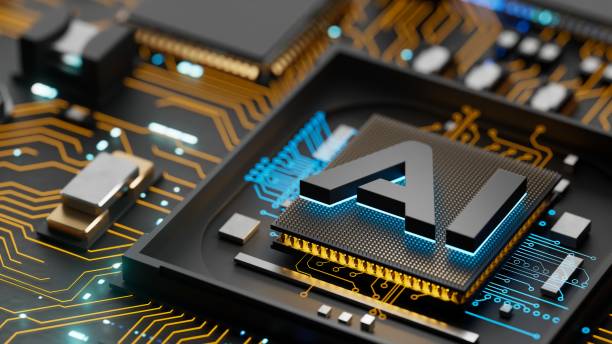The rapid rise of Artificial Intelligence (AI) has changed every aspect of society. But with it fast, the ethical issues of AI are also taking on a new dimension. This article will explore the current debates and developments in the ethics of AI.
1. AI and Ethical Dilemmas

We face the ethical dilemma with A daily. This technology is being introduced in every field, such as healthcare, finance, and law enforcement. However, questions are being raised as to how AI decisions are made and what impact their results can have. Artificial Intelligence algorithms are often biased leading to wrong decisions and unfair behavior. In this regard, privacy concerns have also been raised as to why AI systems collect and analyze users’ personal information, possibly without their consent.
2. AI and privacy concerns
The capabilities of AI systems and the success of data processing and privacy issues have taken a new flight. AI algorithms analyze large amounts of personal data to provide predictions and recommendations, sometimes without the user’s consent. Privacy concerns, data breach is also a major issue where hackers can access sensitive information through Artificial Intelligence systems. Implementation of Data Protection Regulations GDPR (General Data Protection Regulation) is a major step forward today that will help balance privacy with AI.
3. AI and Bias: Algorithmic Discrimination
AI algorithms can mimic and amplify human bias, which can become a source of algorithmic discrimination. You can be based on socioeconomic factors, gender, and ethnicity. Examples of algorithmic bias can be seen in healthcare, hiring practices, and criminal justice systems, where Artificial Intelligence systems produce unfair results. Diverse datasets and ethical AI frameworks are essential to reduce bias, ensuring algorithms are impartial and make fair decisions.
4. Artificial Intelligence and employment: job losses and reskilling
The rapid growth of AI and automation is driving significant changes in the employment sector. Many jobs that were previously for humans are now being done by Artificial Intelligence and robotics, leading to job losses. However, AI is also creating new job opportunities that drive the need for reskilling and upskilling. Governments and organizations may want to strengthen training programs and education systems for their workforce, taking employees up-skilling and ready for changing job markets.
5. AI Ethics Framework: Current Developments

Significant progress has been made in creating and implementing AI ethics frameworks. These frameworks provide guidelines and principles that ensure that AI systems operate responsibly and ethically. Efforts by international organizations and governments such as the OECD’s AI Principles and the EU’s AI Act have set ethical standards that regulate AI development and deployment. These frameworks promote transparency, accountability, and fairness and define measures to prevent abuse of AI systems.
6. AI and Decision Making: The Need for Human Supervision
The decision-making capabilities of Artificial Intelligence systems have improved efficiency and accuracy in any field, but require human supervision. Automated decisions have a direct impact on society, with human oversight that AI systems’ decisions are ethical and fair. Human involvement maintains transparency and ensures the automated system is bias-free and accountable. Without human oversight, AI systems can lead to unethical behavior and unfair outcomes, which undermines societal trust.
7. AI and Security Threats: Cyber Security Challenges
The integration of AI has also increased cyber security challenges. Hacking AI systems and manipulating their algorithms has become easier for cybercriminals. These security breaches compromise data integrity and pose financial and reputational risks to organizations. AI-powered cybersecurity tools are also in development that detect and respond to security threats. But, it is also important to detect vulnerabilities and security risks of AI systems, to prevent cyber-attacks and ensure data protection.
8. AI and Ethical AI Development: Best Practices
Ethical AI development best practices must be adopted to make AI systems responsible and fair. Best practices include integrating ethical guidelines, using diverse data sets, and conducting regular audits and evaluations. Organizations may want to incorporate ethical Artificial Intelligence frameworks into their development processes and monitor the performance of AI systems. It is also important to involve stakeholders and incorporate public feedback so that the development and deployment of AI systems are ethical and user-centered.
9. AI and Social Impact: Positive and Negative Aspects

The social impact of AI can be seen from both positive and negative perspectives. Positive impacts include diagnostic tools in health care, improving access to education, and environmental sustainability solutions. However negative effects include job displacement, privacy violations, and algorithmic bias. Society should maximize the benefits of AI and develop strategies to minimize negative impacts. Balancing the social impact of AI and ensuring responsible use is paramount, the technology can be fully exploited.
10. Future Directions: The Future of AI Ethics
The future of Artificial Intelligence ethics is quite promising but requires constant evolution and adaptation. As AI technologies develop rapidly, ethical frameworks and regulations also evolve. Future directions will explore innovative approaches and solutions for integrating AI ethics. Collaboration between researchers, policymakers, and technology developers is essential to effectively address the ethical issues of AI and to make the technology responsible and beneficial. What the future of AI ethics will look like depends on what standard measures and frameworks we apply today.
AI’s ethical issues are complex and multifaceted, but their solutions are achievable if we embrace collective efforts and innovative thinking. This article highlights current debates and developments in AI ethics and explores future directions, in which Technology and society are essential for the subsequent integration.
